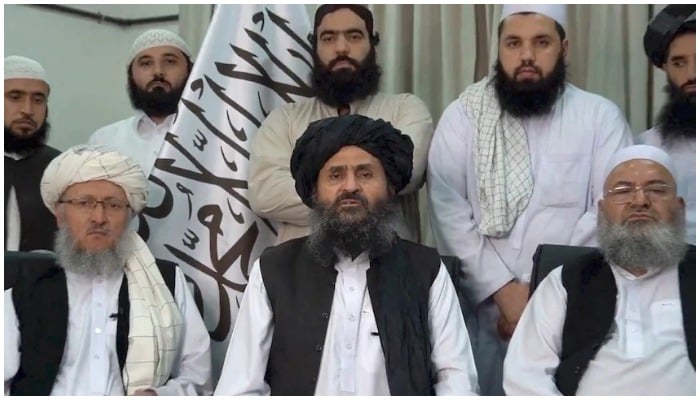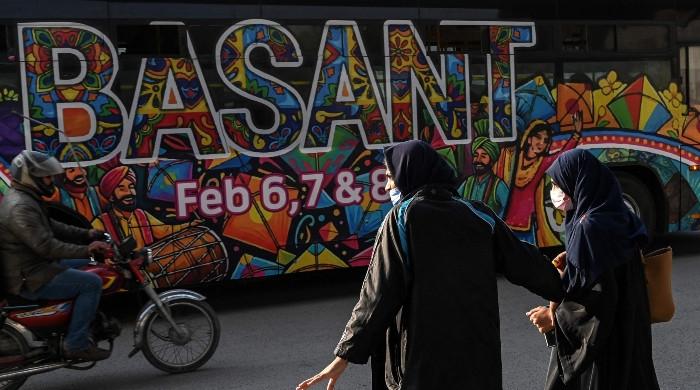Why is the world not recognizing the Taliban government?
Nasim Haider outlines impediments in recognizing new reality in Afghanistan, with almost all stakeholders in direct contact with Taliban govt
December 06, 2021

More than three months have passed since the Taliban took over Kabul, but the world has yet to officially recognize the new government. Even the United States of America that took the lead in inking the Doha peace deal is still weighing the pros and cons of such a possibility.
This situation is lingering on, despite the United Nations warning that Afghanistan is facing a humanitarian crisis of unprecedented proportions and is on the verge of disaster.
So, what are the impediments in recognizing the new reality in Afghanistan, when almost all the stakeholders are in direct contact with the Taliban government?
Broadly, the world can be divided into three major groups on this issue.
The first and the foremost is led by the United States of America. It comprises the European Union, NATO members, most Middle Eastern countries, Japan and India. The second is the regional group that consists of Russia, China, Pakistan, Iran, and a number of Central Asian Countries.
The rest of the world can be categorized into the third group that includes at least six countries from the non-permanent members of the United Nations Security Council.
All these groups have similar views on at least a few points. They have unanimously asked the Taliban to form an inclusive government, ensure the rights of women and minorities and guarantee that Afghanistan will no more serve as the launching pad for global terrorist operations.
But, all is not as black and white. The truth lies somewhere in the grey area. And, these three groups remarkably differ from each other.
Let’s first consider a group led by the United States of America. The Biden administration has not openly demanded who should or shouldn’t be in the inclusive government. But, there are clear signs that Washington wants to see some significant figures of the previous governments be given important portfolios.
Thomas West, the US special envoy for Afghanistan, has recently participated in a two-day talk with the Taliban. These discussions have the potential to make some headways in economic support. But, the United States is in no hurry to recognize the Taliban. Why?
Well, after the September 11 attacks on the United States of America, Washington had declared the Taliban as a terrorist organization. Gradually, they were divided into reconcilable and irreconcilable ones. Hasn’t the time come to include currently banned figures in the reconcilable ones as they have submitted themselves to the Doha Peace Agreement?
Till now, international pressure to take them out of the cabinet hasn’t worked. There are least chances that it will. True, the Taliban have accommodated dozens of Afghans by giving them ceremonial positions. But, it's an admitted fact that the top hierarchy remains the same.
This stubbornness has raised some eyebrows in Russia, China, and Iran, who also want a truly inclusive government that represents all the main ethnic and political groups. This second group is also keeping mum about naming those who they want to see in the government.
But, each member of this group wants a friendly and independent Afghan government, which diplomatically means less dependent on the group led by the United States of America.
This second group pretends that it is equally not in a hurry to recognize the Taliban. In reality, with every passing day, this group is becoming more concerned about why the world is not coming to terms with the new reality of Afghanistan.
The reason is obvious. Pakistan, Iran, China, Russia, and the Central Asian countries have more stakes in the region. For this reason, they had cultivated ties with the Taliban long before the fall of Kabul.
The increasing presence of Daesh in Afghanistan has given these countries another reason to join hands. After all, this group has long faced one terrorist organization or the other.
Moscow can’t afford another Beslan Siege of 2004 when 32 Chechen terrorists took 1,200 children and adults hostage and killed at least 330 in a primary school.
China equally wants to stop the resurgence in Xinjiang where Uighur militants killed 39 people in a vegetable market in 2014. Any such incident now has the potential to cast a shadow over the security of the One Belt One Road initiative as Xinjiang connects China with eight major countries.
Iran, already facing a biting economic situation, is putting up all efforts to stop elements seeking instability. It’s a country where militants disguised as soldiers killed 25 people in the Ahvaz military parade, during sacred defense week.
Pakistan is the worst-hit country. In a few days, the nation will mourn the Army Public School massacre that had shocked the whole world.
But by recognizing the Taliban, the world can strengthen them to go against Daesh and affiliated groups that seem to have a bigger agenda in the region and beyond. It will also avert total economic collapse and lawlessness that is serving as the breeding ground for extremist ideologies.
As far as the Taliban are concerned, they should also realize that an inclusive government will strengthen not weaken their rule.











